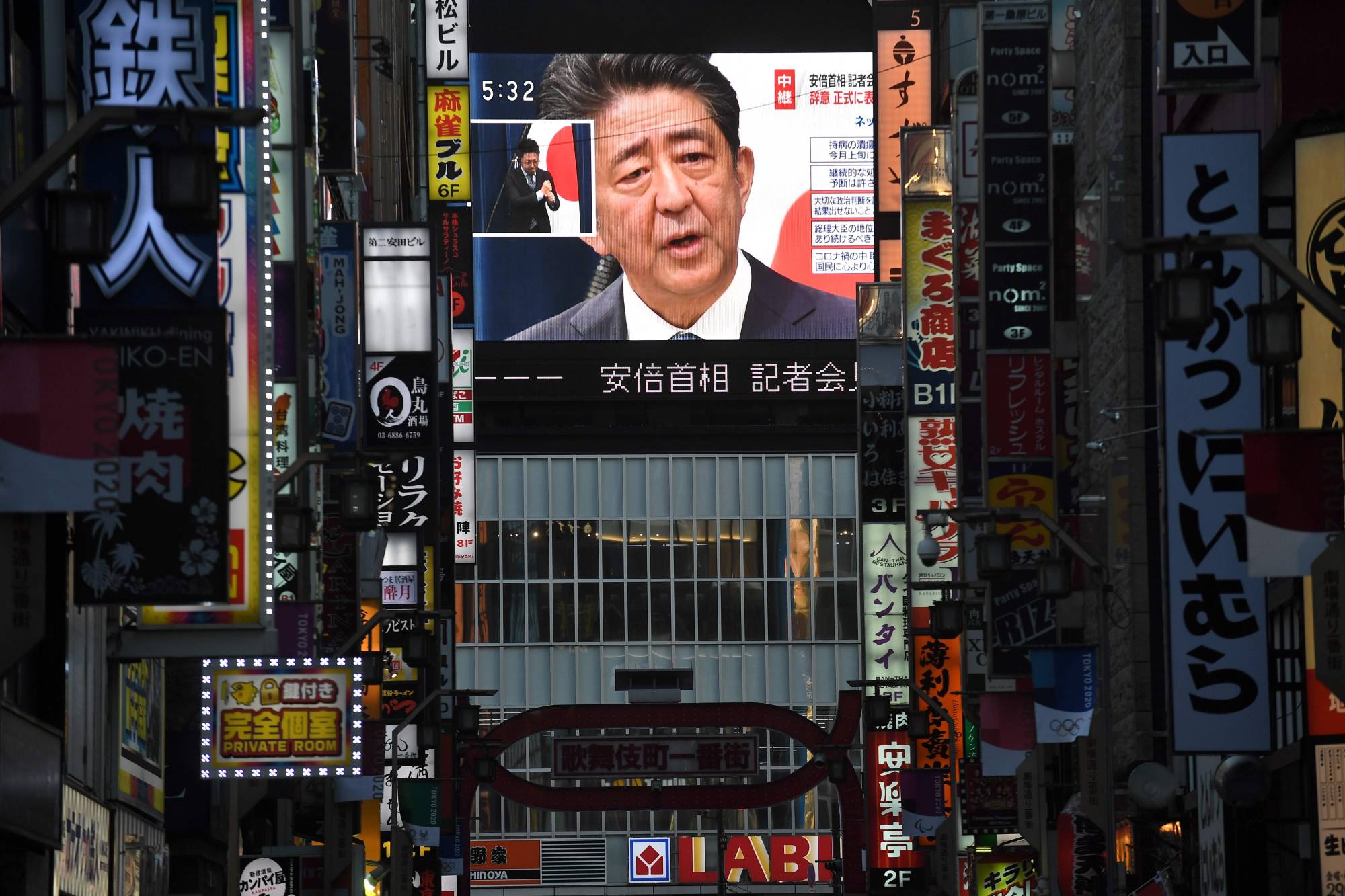Shinzo Abe’s sudden resignation (on health grounds) ends the tenure of Japan’s longest-serving prime minister. The country’s most internationally recognized statesman since 1945, Abe has been, among other things, the world leader most keen on playing golf with U.S. President Donald Trump.
Although he leaves with a still-weak economy, Abe has made Japan stronger and more autonomous in matters of defense and foreign policy. Whoever succeeds him will likely continue on that path, which is good news for proponents of peace in East Asia and of the rules-based international order more generally.
Abe’s current term was set to end in September 2021, but his approval ratings had fallen to historic lows, making another run for the premiership a non-starter. The manner of his departure, after nearly eight continuous years in office, thus reflects an old principle of political life. For a long-serving party leader who knows the end of his political career is nigh, it is better to set the terms of one’s own departure than be pushed out by dagger-wielding rivals.



















With your current subscription plan you can comment on stories. However, before writing your first comment, please create a display name in the Profile section of your subscriber account page.